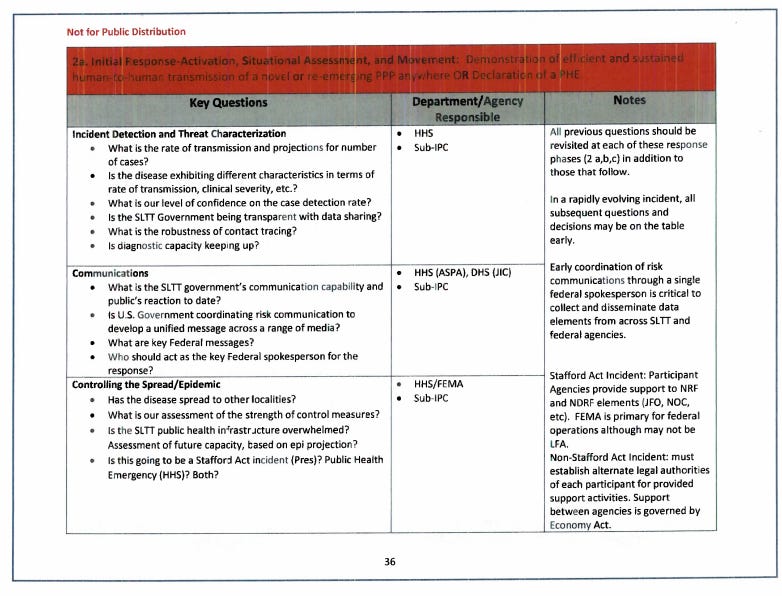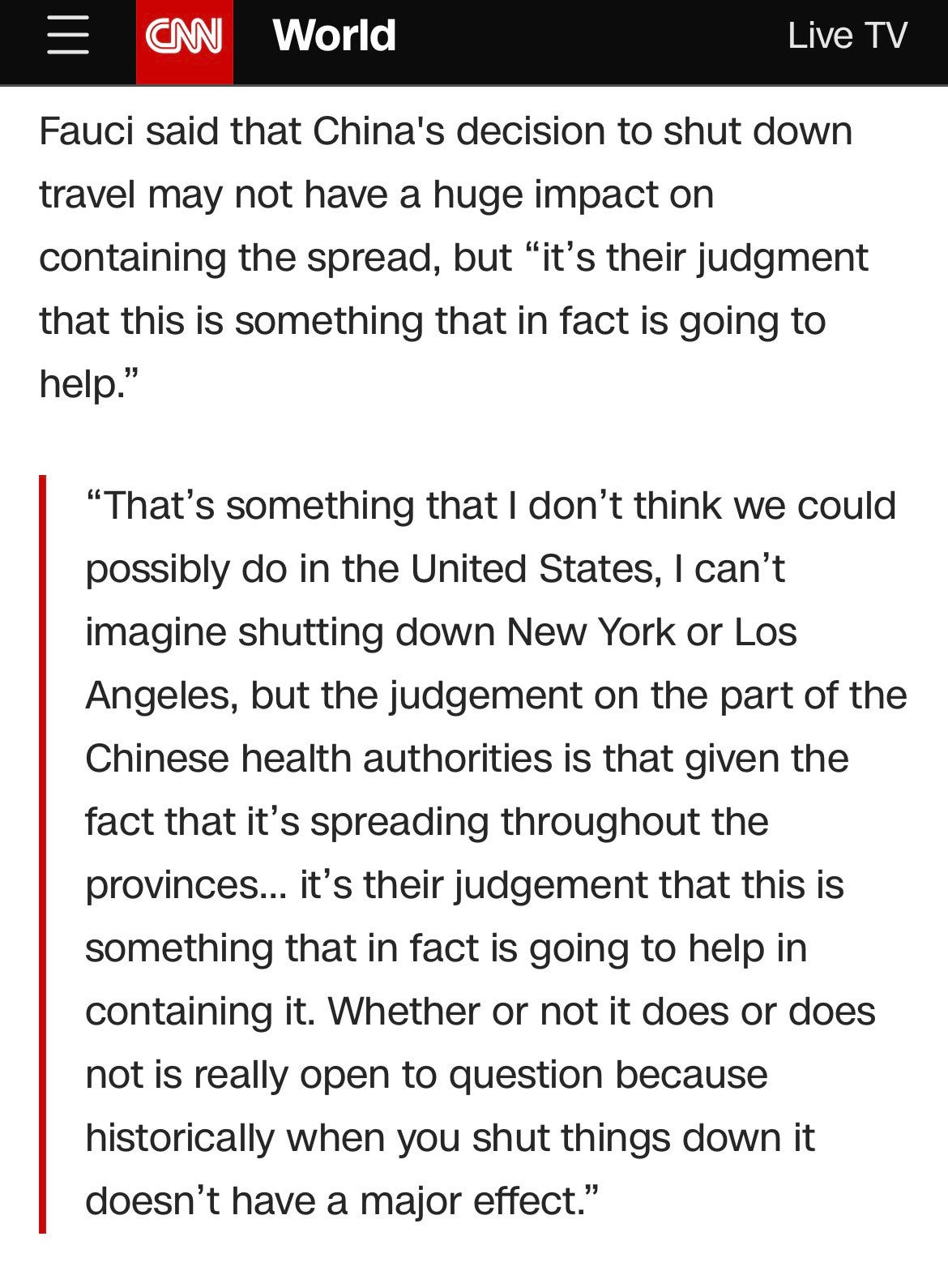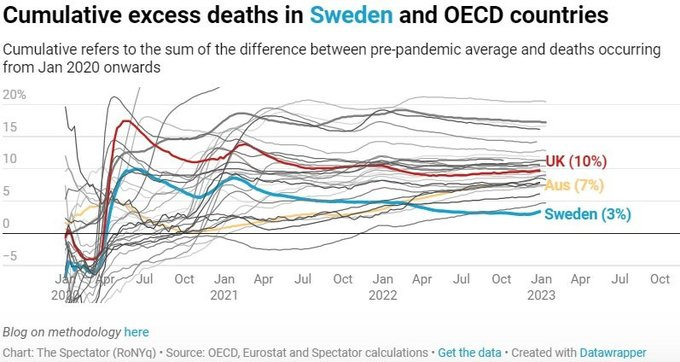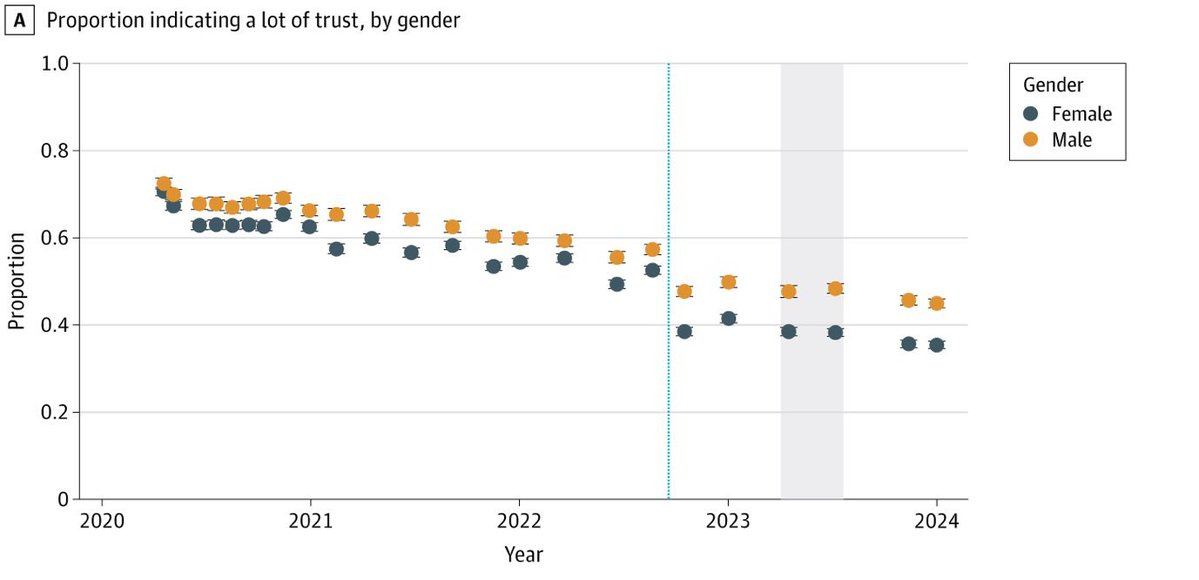Obama spreads COVID misinformation in a desperate bid to prop up the Harris campaign
Obama pushes historical revisionism about the Trump pandemic response
In his latest Kamala campaign speech, Obama implies that if Trump followed his pandemic playbook, implementing stricter measures, deaths would have been the same as Canada, with 400,000 fewer.
But Obama is lying to score political points.
For one, his claims are impossible.
Obama's 2016 pandemic playbook did not specify what measures should be used against a pathogen like SARS-CoV-2, or indeed, against any pathogen. It provides no guidance as to what specific mitigation decisions should be made.
The first 41 pages of the document merely specify how the pandemic response should be coordinated administratively and how agencies should work together.
These pages provide very rough guidelines about what kinds of assessments should be done, leaving the rest up to the experts involved. The plan provides questions to focus on and which agencies should be coordinated to address them.
Here is the kind of material that dominates the plan's first 40 pages.
Nothing meaningful about actions that could be taken.
The one page in the first 41 pages that addresses action to be taken at all does not even mention non-pharmaceutical community measures like lockdowns:
This is because non-pharmaceutical/non-medical measures were controversial in the pandemic management community prior to 2020.
An extremely influential paper written by D.A. Henderson (who was responsible for eradicating smallpox) established this consensus. His contribution to pandemic policy has recently been discussed by Joe Nocera in The Free Press.
The paper is here:
In this paper, strong statements against community measures like lockdowns and school closures were made. Some of these are as follows:
"Closure of schools. It has been the practice in many communities to close the schools for 10–14 days at the beginning of an epidemic of seasonal flu, primarily because of the number of both teachers and pupils who are absent. This is a reasonable initiative, often expected in many communities, that also serves to demonstrate action on the part of officials. Closing schools for longer periods in hopes of mitigating the epidemic by decreasing contacts among students is not warranted unless all other likely points of assembly are closed (e.g., malls, fast-food restaurants, churches, recreation centers, etc.). Such widespread closures, sustained throughout the pandemic, would almost certainly have serious adverse social and economic effects. …
"Quarantine. As experience shows, there is no basis for recommending quarantine either of groups or individuals. The problems in implementing such measures are formidable, and secondary effects of absenteeism and community disruption as well as possible adverse consequences, such as loss of public trust in government and stigmatization of quarantined people and groups, are likely to be considerable. …
"Cancelling or postponing meetings or events involving large numbers of people. Intuitively, this would appear to be a helpful adjunct to reduce contacts among people and so mitigate the effects of the epidemic. However, individuals normally have a great many contacts throughout the community on a daily basis: shopping in stores, attending church, traveling on public transport, and so on. Recognizing that the spread of influenza is primarily by person-to-person contact, any one individual, even in a large gathering, would have only a limited number of such close encounters with infected people. Thus, cancelling or postponing large meetings would not be likely to have any significant effect on the development of the epidemic. While local concerns may result in the closure of particular events for logical reasons, a policy directing community-wide closure of public events seems inadvisable. …
"Screening passengers at borders or closing air or rail hubs. Experience has shown that these actions are not effective and could have serious adverse consequences; thus, they are not recommended. …
"An overriding principle. Experience has shown that communities faced with epidemics or other adverse events respond best and with the least anxiety when the normal social functioning of the community is least disrupted. Strong political and public health leadership to provide reassurance and to ensure that needed medical care services are provided are critical elements. If either is seen to be less than optimal, a manageable epidemic could move toward catastrophe."
Indeed, the paper casts doubt on masking recommendations, pointing out that the evidence in support of their use is lacking:
The situation regarding masking evidence has not changed in the intervening years. If anything, masks are even more questionable now than they were then.
Reflecting this precedent, for years, most pandemic simulations have involved intense debate about whether or not to even restrict travel. Until 2020, non-pharmaceutical interventions were highly controversial. (This is in contrast to the claims of RFK Jr., who misreports this part of the story in his book on Fauci.)
Indeed, in 2019, WHO's assessment of the evidence was roughly consistent with Henderson's interpretation.
At that time, WHO did not even evaluate the effectiveness of large-scale lockdowns, which were, up until the COVID-19 pandemic, unthinkable among public health experts.
WHO's guidelines strongly advise to limit the duration of school closures, for instance. The United States and many countries around the world violated these guidelines, especially in parts of the country like California, to devastating effect.
Indeed, most of the public health community continued to be skeptical about lockdowns in early 2020, including Anthony Fauci.
With what we know now, let's circle back to the Obama document.
Again, the document's first 40 pages only briefly discuss medical countermeasures, not community mitigation strategies, likely because these were frowned upon by pandemic experts up to this point.
In the appendix, Obama's document does discuss in one very tiny paragraph community mitigation strategies on page 45.
This paragraph only mention the possibility of using these measures, without any guidance about when to use them.
The rest of the appendix is purely about vaccines, a page on travel restrictions (the least controversial non-pharmaceutical measure), agencies acronyms, etc.
In other words, the measures that Obama is alluding to in his playbook that became a staple of pandemic management during COVID were mentioned by that playbook only in passing, without any recommendations.
Even if Obama himself had been in office and had followed the playbook to a 'T', Obama could have had no masking, no lockdowns, no school closures, and still followed his own playbook—because the playbook didn't make any specific recommendations about these interventions.
In other words, Obama is straight-up lying.
This is, incidentally, why when Kayleigh McEnany was asked about Obama's pandemic plan, she dismissed it as not useful.
For the purposes of any specific recommendations, it was.
In any case, there’s still no evidence that these interventions even worked—undermining Obama’s contention that if they had been implemented, they would have saved 400,000 additional lives. (Let us ignore for a moment that they were not necessarily recommended by the Playbook.)
For instance, here's an excellent overview on the evidence for lockdowns by Joe Nocera in New York Magazine.
To summarize, not only is the scientific literature mixed that lockdowns even worked (mainly because once you lift these measures, people get infected anyway), that same literature is unambiguously clear that lockdowns and school closures had terrible negative externalities.
These interventions delayed medical treatment, resulting in deaths, they caused economic dislocation, contributed to today's hyperinflation, catastrophic learning loss among children, increased suicides, harmed mental health, etc.
Given this evidence, although Obama claims that Canada did much better than America, that's likely because Canada was much healthier prior to the pandemic, not because Trump didn't follow a plan that Obama never created in the first place.
Indeed, Trump's pandemic response, under the influence of Birx and Fauci and the emerging global consensus influenced by the Chinese strategy, would have been considered extreme by the standards of the time under which Obama's pandemic playbook was written!
The case of Sweden provides a powerful counterfactual.
Implementing a voluntary pandemic mitigation strategy--no lockdowns at all--Sweden executed a plan that was the exact opposite of the rapidly changing global consensus at the time.
Yet, Sweden had one of the lowest excess mortality rates in the world.
Meanwhile, in contrast to what happened in America, the Swedish population enjoyed a surge of trust in its public health agencies and doctors during the pandemic.
Yet, here's what happened to trust in hospitals and doctors in America:
This decline in trust by Americans toward doctors will have a devastating impact on public health for years if not decades to come.
To address Obama’s claim that 400,000 more American lives would have been saved had they followed his plan (presumably one similar to Canada’s…which wasn’t his plan at all…), Ioannidis and colleagues have estimated that if America replicated Sweden's outcomes, America would have had 1.6 MILLION fewer deaths than it had during the pandemic--far better than Obama's Canada.
According to Ioannidis, the most important variables determining excess deaths in a pandemic are per capita GDP (fewer deaths), proportion of population living in poverty (more deaths), and income inequality (more deaths). See below:
These factors--and not nonpharmaceutical interventions--likely determined the lion's share of the impact of the COVID-19 pandemic on the American population.
It is likely, and my position as well as the position of many scientists, that the measures taken in the United States that Obama favors—like lockdowns and school closures—increased the mortality rate during the pandemic and afterward, causing more harm than good.
Something like this was indeed, again, the consensus at the time that Obama's playbook was published—which again, contrary to Obama's claims, never contained any of the advice that Obama says it did.
So, not only is Obama lying—he is almost certainly wrong about the pandemic science as well.
Don't buy his lies.



















The University of Arizona has archived news articles from the 1918 Flu Pandemic. Masks, lockdowns, business closures, etc were all implemented and failed just as epically as it all did in the COVID plandemic. None of it either prevented acquisition or dissemination of flu. It just caused societal level damage and ruined lives and livelihoods. Everyone in public health involved in the plandemic is aware of this history.
So there's that historical nugget for you.
As far as Barry Soetoro, he should focus more on keeping Kamala sober since his remote ear piece type of communication is easier when the she is not intoxicated. BTW, why isnt Big Mike politicking with Barry?
I’m going to vote for Trump while y’all read the Plandemic playbook. I beat Covid in 2021! No joke!😂